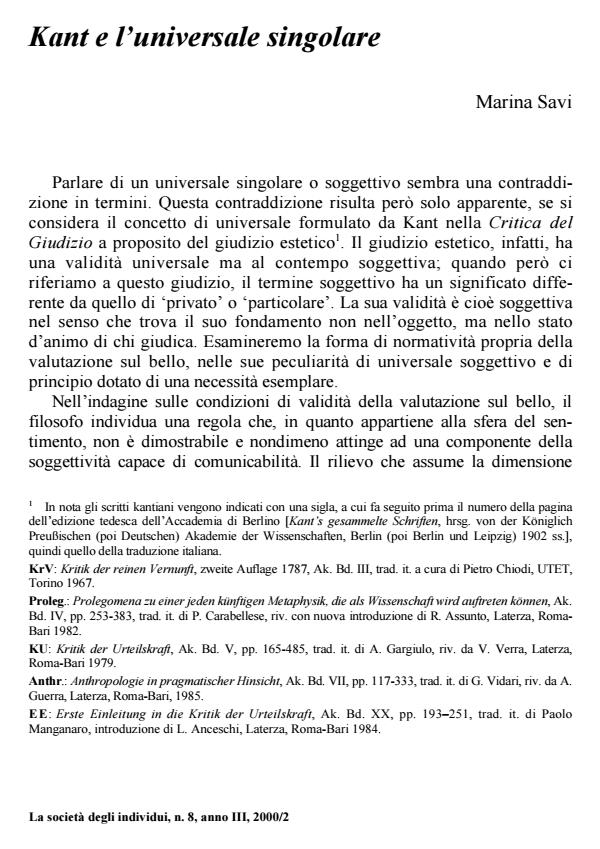Kant e l'universale singolare
Journal title SOCIETÀ DEGLI INDIVIDUI (LA)
Author/s Marina Savi
Publishing Year 1 Issue 2000/8 Language Italian
Pages 13 P. File size 54 KB
DOI
DOI is like a bar code for intellectual property: to have more infomation
click here
Below, you can see the article first page
If you want to buy this article in PDF format, you can do it, following the instructions to buy download credits

FrancoAngeli is member of Publishers International Linking Association, Inc (PILA), a not-for-profit association which run the CrossRef service enabling links to and from online scholarly content.
In the Critique of Judgement, Kant considers the validity of aesthetic judgement as being dependent upon the principle of intersubjectivity. Accordingly, he conceives the standard of the beautiful in terms of a ‘subjective universal’. The author analyses Kant’s theory of aesthetic judgement from the point of view of the relation between the individual and his community. The reason behind this choice is that it is the intersubjective context - where, by the way, the evaluation of taste takes place - that makes dialogue and communication, and therefore, the universality of reason, possible. Within this framework, the individual subject acknowledges his own individuality only by comparing himself with other people. Or, to put it in Kant’s terms, everyone is what he is "provided he can move to the standpoint of others". savi@netsis.it
Marina Savi, Kant e l'universale singolare in "SOCIETÀ DEGLI INDIVIDUI (LA)" 8/2000, pp , DOI: